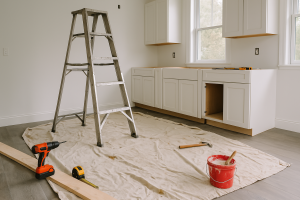Team Angela Langtry | Real Estate Montreal par Angela Langtry
Are you a renter living in Montreal? Or, are you looking to invest in a home and rent out your investment property? Do you know Quebec’s tenants’ rights? If not, don’t worry – you’ve come to the right place. Both parties should feel secure and confident when signing a lease and throughout the tenancy in order to ensure a positive experience. This guide will go over the most important tenants’ rights that all Montreal renters should be aware of before signing a rental agreement. Let’s get started!
1. Security Deposits & Last Month’s Rent – One of the most important things for a tenant to know is the amount of money required upfront. In Quebec, landlords cannot legally ask for a security deposit or last month’s rent from tenants. Instead, they may only ask for an installment of the first month’s rent. Signing a lease should not require any financial obligation beyond the rent itself.
2. Terms and Conditions – All rental agreements are subject to Quebec’s Civil Code. This means that when it comes to leases, landlords must provide written proof of any changes they make to existing lease agreements. Furthermore, those changes must not conflict with Quebec’s Civil Code. If a landlord attempts to add any illegal or unacceptable clauses into a lease agreement, it is up to the tenant to challenge them by filing a complaint with the Tribunal Administratif de Logement.
3. Pets – In Montreal, the landlord can prevent tenants from having a pet in a rented home. This can be stated either in the rules of the building or in the lease. A tenant may be able to negotiate this clause upon signing, but it is ultimately up to the landlord to decide if they are comfortable allowing them to bring a pet to the property. Keep in mind that cats are generally more acceptable in rental properties than dogs. If the lease is already signed and there is no clause against animals, the pet is allowed. However, in some condo buildings, only domestic pets are allowed and this should be verified prior to signing a lease if a tenant has any kind of exotic pet such as a snake.
4. Repairs & Maintenance – Landlords are responsible for making sure that repairs and maintenance necessary for keeping their property livable are completed in a timely manner, especially if these repairs were caused by normal wear-and-tear or other circumstances beyond the tenant’s control. If there are any urgent repairs that need to be done (e.g., gas leaks or broken appliances) then the landlord must address these issues very quickly. In cases where urgent repairs cannot be completed quickly enough, tenants may be able to seek compensation from their landlord for costs incurred due to inconvenience or living expenses during this period of time. Keep in mind that some small repairs are the tenant’s responsibility.
5. Privacy & Security – Tenants have a right to privacy and security while living in their rental unit or building. Landlords cannot enter a tenant’s unit without permission, except under certain circumstances such as performing emergency repairs. Additionally, landlords must protect their tenants’ personal information by taking measures such as securing locks on doors and windows and using secure passwords when accessing electronic systems like Wi-Fi networks and online payment systems used for collecting rent payments.
6. Rent Increases – Landlords may increase rent up to once every 12 months (only on a 12 month lease), providing they give at least three months’ written notice before doing so. The amount of rent increase should be reasonable and is usually about 1% of the monthly rent price per year. We advise that landlords use the rent calculator provided by the Tribunal Administratif de Logement by clicking the link in our sources. Furthermore, landlords cannot raise rent prices mid-lease unless both parties agree on new terms and sign a new lease agreement. Notice must always be given 3-6 months prior to the end of the lease.
7. Ending the Lease – For landlords to take back occupancy on a property under a 12-month lease, owners must give tenants at least six months’ notice before the end of the lease (not 6 months’ anytime). This means that if a lease ends on June 30th, then a landlord must give notice by December 31st. In fact, even if there are only 5 months left on a contract when notice is given, the tenant still has 6 months from when the notice was issued until they need to vacate the property. There are only special circumstances in which a tenant can break a lease early. These include the apartment not being fit to live in, being a victim of spousal/sexual violence, being a senior moving into assisted living, or moving into low-rent housing instead. Check out our blog post in the sources about repossessing a dwelling if the lessee is a senior. The tenant may also decide to sublet or transfer the lease to someone else.
Tenants and landlords both have numerous rights under Quebec’s Civil Code; some of these include protection from arbitrary rent hikes and evictions, the right to end a lease, and the right to access basic services such as heat and running water. By being aware of tenant rights in Montreal, both parties can ensure the rental experience is positive and stress-free. It is always important for everyone to read their lease agreement carefully before signing and to make sure the tenants understand all legal requirements related to their tenancy agreement. Knowing your rights will help protect you against potential issues, while also providing peace of mind during your rental experience in Montreal!
*Source: https://educaloi.qc.ca/en/categories/renting/
Rent Increase Calculator: https://www.tal.gouv.qc.ca/en/calculation-for-rent-increase
Repossessing a Dwelling if the Lessee is a Senior:
https://angelalangtry.ca/repossessing-a-dwelling-if-the-lessee-is-a-senior/
If you have any questions, or would like to know more about the Montreal real estate market, please feel free to reach out to us at:



